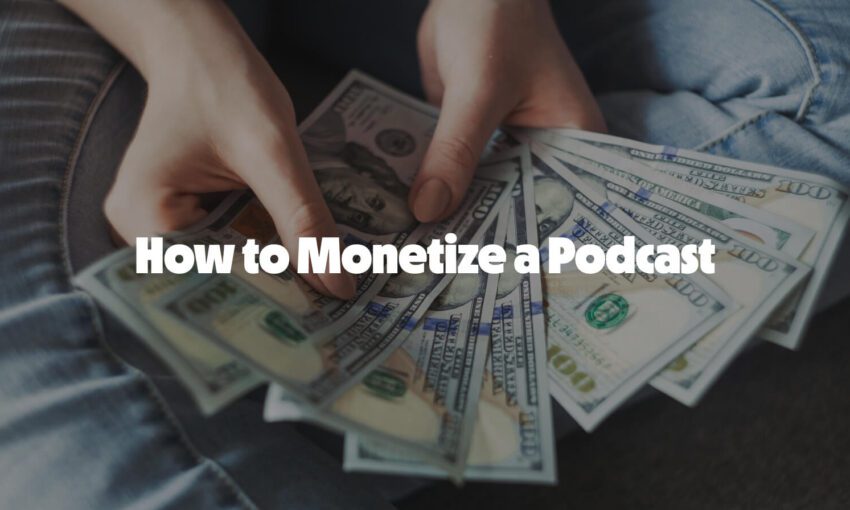Introduction
Podcasting has exploded in popularity, but many podcasters struggle with monetization—especially those in niche markets. The good news? A niche podcast has a targeted, engaged audience, which can be even more profitable than a broad-topic show.
In this guide, we’ll explore 10 effective monetization techniques that can help you turn your podcast into a revenue-generating machine. Whether you have a small but dedicated listener base or are just getting started, these strategies will help you maximize income while serving your audience.
1. Coaching & Consulting: Monetize Your Expertise
If you have a specialized skill or knowledge, offering coaching or consulting services can be one of the easiest ways to monetize your podcast.
How It Works:
- Promote your coaching services during podcast episodes.
- Offer one-on-one coaching sessions via Zoom or phone calls.
- Create a Calendly booking link to make scheduling easy.
Example:
A financial planning podcast could offer one-hour coaching calls to help listeners create a personal budget or retirement plan.
Pro Tip: Add a clear call-to-action (CTA) in your podcast:
“Want to take your [topic] to the next level? Book a one-on-one coaching session with me—link in the show notes!”
2. Online Courses: Turn Knowledge into a Scalable Product
Creating an online course allows you to package your expertise and sell it at scale.
How It Works:
- Identify a key topic that resonates with your listeners.
- Create a step-by-step video or text-based course.
- Sell the course on platforms like Teachable, Kajabi, or Gumroad.
Example:
A podcast about digital marketing could create a course titled:
“Mastering Facebook Ads: A Step-by-Step Guide for Small Businesses.”
🔹 Vanessa Lau, a business strategist, grew her online course to seven figures using podcasting as a marketing funnel.
Pro Tip: Offer a free mini-course to attract leads and upsell your premium course.
3. Affiliate Marketing: Earn Commissions from Recommendations
Affiliate marketing allows you to earn passive income by promoting products and earning a commission on sales.
How It Works:
- Join affiliate programs like Amazon Associates, Buzzsprout, or software tools.
- Mention affiliate products organically in podcast episodes.
- Share your affiliate links in show notes and on your website.
Example:
A tech podcast could promote podcasting gear with an Amazon affiliate link:
“We use the [XYZ microphone] for crystal-clear audio—check it out using our link in the show notes!”
Pro Tip: Only promote products you trust to maintain audience credibility.
4. Brand Sponsorships: Get Paid for Promoting Companies
Brands love niche podcasts because they attract a highly targeted audience.
How It Works:
- Reach out to brands relevant to your niche (e.g., a fitness podcast could partner with protein supplement brands).
- Offer pre-roll or mid-roll ad placements during episodes.
- Use the Buzzsprout Affiliate Marketplace to find sponsors.
🔹 Angie Lee’s podcast secures sponsorships from CBD and software brands, proving that even micro-influencers can land deals.
Pro Tip: Start with small sponsorships (e.g., $50–$200 per episode) and increase rates as your audience grows.
5. Selling Merchandise: Convert Listeners into Customers
Your podcast brand can extend into physical products like:
✅ T-shirts
✅ Mugs
✅ Stickers
✅ Notebooks
How It Works:
- Use Print-on-Demand (POD) services like Printful, Teespring, or Spreadshop.
- Design custom merch related to your podcast theme.
- Promote it during episodes and on social media.
Example:
A comedy podcast could sell T-shirts with inside jokes from their show.
Pro Tip: Use Shopify for easy e-commerce integration.
6. Patreon & Membership Sites: Offer Exclusive Content
Listeners love exclusive perks—why not charge a small fee for premium content?
How It Works:
- Create a Patreon or Buy Me a Coffee page.
- Offer exclusive episodes, behind-the-scenes content, or Q&A sessions.
- Charge $5–$20/month for premium access.
Example:
The Verity Podcast monetizes through Patreon-exclusive Bible study guides.
Pro Tip: Offer a shoutout to Patreon supporters in episodes for extra engagement.
7. Crowdfunding: Let Listeners Support Your Work
If your podcast has an engaged fan base, try crowdfunding through:
📌 GoFundMe
📌 Kickstarter
📌 Indiegogo
How It Works:
- Run a fundraising campaign to support new podcast equipment or expansion.
- Offer tiered rewards (e.g., exclusive merchandise for top donors).
Example:
A history podcast could raise funds for on-location travel episodes.
Pro Tip: Be transparent about funding goals to build trust.
8. Hosting Live Events & Workshops
Why not take your podcast offline and into the real world?
How It Works:
- Organize meetups, workshops, or virtual webinars.
- Charge ticket fees or secure event sponsorships.
- Use Eventbrite to sell tickets.
Example:
A business podcast could host a networking event for entrepreneurs.
Pro Tip: Offer VIP ticket tiers for added value.
9. Repurposing Content for YouTube Ad Revenue
If you’re only doing audio podcasts, you’re missing out on YouTube’s AdSense revenue.
How It Works:
- Record video versions of your podcast.
- Upload to YouTube and monetize through ads.
- Create short clips for TikTok, Instagram, and YouTube Shorts to drive traffic.
🔹 The Think Media Podcast grew to 50,000+ subscribers by leveraging YouTube.
Pro Tip: Start simple—record with a smartphone and upgrade later.
10. Selling Books & Digital Products
If you’re an expert in your niche, consider selling:
📌 E-books
📌 Digital templates
📌 Exclusive reports
How It Works:
- Promote your product naturally within episodes.
- Sell via your website or Amazon KDP.
Example:
A productivity podcast could sell a daily planner template.
Pro Tip: Offer a free sample to drive conversions.
Conclusion: Start Monetizing Your Niche Podcast Today
Making money from a niche podcast is 100% possible. By leveraging multiple income streams, you can build a profitable podcasting business—even with a small, engaged audience.
🔹 Pick 2-3 monetization techniques to start with.
🔹 Test and refine your approach over time.
🔹 Stay consistent and keep growing your audience!
🚀 Which monetization technique will you try first? Let us know in the comments!

